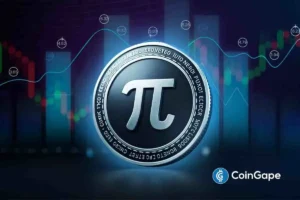Galaxy Research has proposed a new method called Multiple Election Stake-Weight Aggregation (MESA) to reform Solana’s inflation governance discussion. This proposal aims to introduce a market-driven process to adjust the SOL emissions curve, without relying on single-outcome votes. The ultimate goal is still to reach a 1.5% terminal inflation rate, but the timeline could be accelerated depending on the community’s vote. Galaxy’s projections suggest that maintaining the current 15% deflation rate would reach the terminal rate around epoch 2,135, about 7.4 epoch years from epoch 772. Steepening the deflation rate would bring this point closer.
Concerns about Solana’s inflation have been growing, especially after the network’s annualized inflation rate rose by 30.5% due to the implementation of a new priority fee distribution mechanism under Solana Improvement Document 96 (SIMD-96) in May 2024. This change redirected all priority fees to validators instead of burning half, reducing the daily Solana burn significantly. The current Solana system follows a fixed, time-dependent curve to target a 1.5% terminal inflation rate, but challenges in reaching a consensus on adjusting parameters have been observed in previous votes, like SIMD-228, which proposed dynamic inflation adjustments based on staking participation and was rejected in March.
The proposed MESA system offers validators multiple predetermined deflation rates to choose from, with the outcome being determined through a weighted average of these votes. This approach aims to allow validators to express a wider range of preferences in a single process while preserving predictability. The proposal does not advocate for any specific inflation rate but suggests a governance framework for the community to consider. Instead of dynamically adjusting inflation based on real-time metrics, the MESA system would enforce a fixed disinflationary trajectory, with the rate adjusted based on validators’ collective input once ratified.
The proposal also addresses implementation questions for the Solana community to consider, such as how granular the spectrum of “yes” votes should be, whether to apply existing quorum and supermajority thresholds, and the most appropriate calculation method for determining the new deflation rate. By presenting various hypothetical voting outcomes, Galaxy’s filing illustrates how the process would work in practice. This approach allows validators to express nuanced preferences while avoiding the inefficiencies of repeated binary votes. The goal is to provide a more efficient and effective governance system for Solana’s inflation adjustments.
In conclusion, Galaxy Research’s proposal for MESA offers a new method for Solana’s inflation governance, aiming to streamline the adjustment process and provide validators with a wider range of preferences to express in a single vote. The proposal seeks to address concerns about inflation and governance challenges that have emerged in previous votes, such as SIMD-228. By presenting a structured approach to adjusting the deflation rate based on validators’ input, the MESA system could potentially accelerate Solana’s timeline to reach its terminal inflation rate while ensuring predictability and efficiency in the governance process. It will be interesting to see how the Solana community responds to this proposal and whether it will be implemented to improve the network’s inflation governance.

















